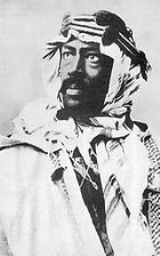
by William Shakespeare
, believed to have been written in approximately 1603, and based on the Italian short story "Un Capitano Moro" ("A Moorish Captain") by Cinthio, a disciple of Boccaccio, first published in 1565. The work revolves around four central characters: Othello
, a Moorish
general in the Venetian army; his wife Desdemona
; his lieutenant, Cassio
; and his trusted ensign
Iago
.
Heaven is my judge, not I for love and duty,But seeming so, for my peculiar end:For when my outward action doth demonstrateThe native act and figure of my heartIn compliment extern, 'tis not long afterBut I will wear my heart upon my sleeveFor daws to peck at: I am not what I am. ![]()
Even now, now, very now, an old black ramIs tupping your white ewe. ![]()
Your daughter and the Moor are now making the beast with two backs. ![]()
Keep up your bright swords, for the dew will rust them. ![]()
My story being done,She gave me for my pains a world of sighs:She swore, in faith, 'twas strange, 'twas passing strange; 'Twas pitiful, 'twas wondrous pitiful. ![]()
She lov'd me for the dangers I had pass'd,And I lov'd her that she did pity them.![]()
The robb'd that smiles, steals something from the thief; He robs himself that spends a bootless grief.![]()
Look to her, Moor, if thou hast eyes to see:She has deceived her father, and may thee.![]()
Thus do I ever make my fool my purse.![]()
I hate the Moor;And it is thought abroad, that 'twixt my sheetsHe has done my office: I know not if 't be true;But I, for mere suspicion in that kind, will do as if for surety. ![]()

